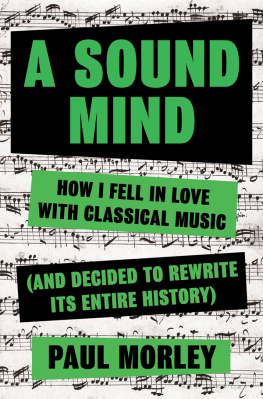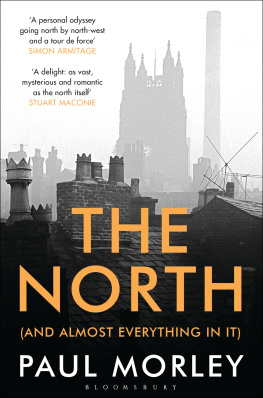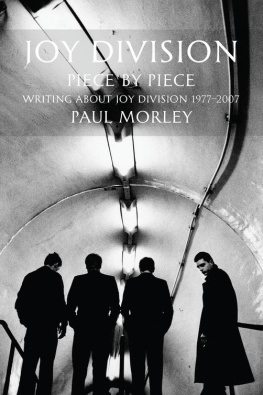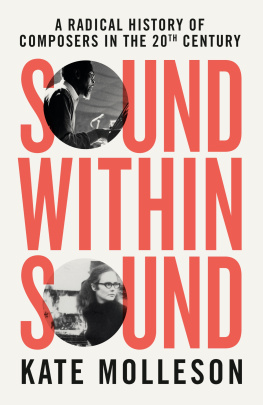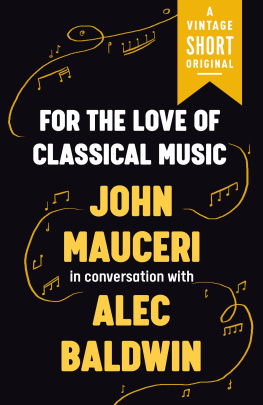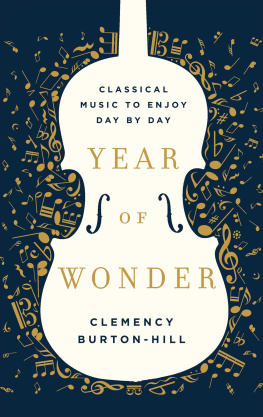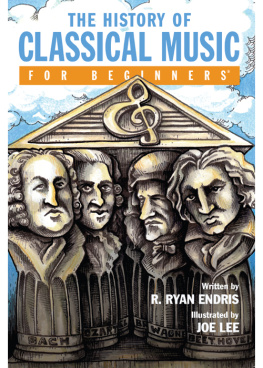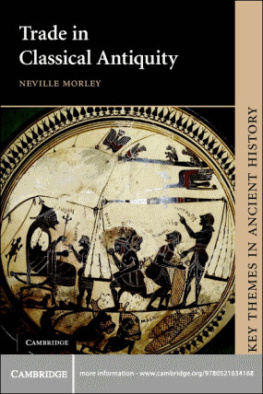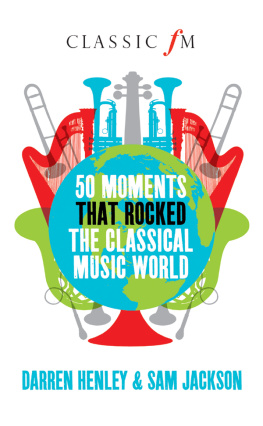Paul Morley - A Sound Mind: How I Fell in Love with Classical Music (and Decided to Rewrite its Entire History)
Here you can read online Paul Morley - A Sound Mind: How I Fell in Love with Classical Music (and Decided to Rewrite its Entire History) full text of the book (entire story) in english for free. Download pdf and epub, get meaning, cover and reviews about this ebook. year: 2020, publisher: Bloomsbury Publishing, genre: Home and family. Description of the work, (preface) as well as reviews are available. Best literature library LitArk.com created for fans of good reading and offers a wide selection of genres:
Romance novel
Science fiction
Adventure
Detective
Science
History
Home and family
Prose
Art
Politics
Computer
Non-fiction
Religion
Business
Children
Humor
Choose a favorite category and find really read worthwhile books. Enjoy immersion in the world of imagination, feel the emotions of the characters or learn something new for yourself, make an fascinating discovery.
- Book:A Sound Mind: How I Fell in Love with Classical Music (and Decided to Rewrite its Entire History)
- Author:
- Publisher:Bloomsbury Publishing
- Genre:
- Year:2020
- Rating:5 / 5
- Favourites:Add to favourites
- Your mark:
- 100
- 1
- 2
- 3
- 4
- 5
A Sound Mind: How I Fell in Love with Classical Music (and Decided to Rewrite its Entire History): summary, description and annotation
We offer to read an annotation, description, summary or preface (depends on what the author of the book "A Sound Mind: How I Fell in Love with Classical Music (and Decided to Rewrite its Entire History)" wrote himself). If you haven't found the necessary information about the book — write in the comments, we will try to find it.
A Sound Mind: How I Fell in Love with Classical Music (and Decided to Rewrite its Entire History) — read online for free the complete book (whole text) full work
Below is the text of the book, divided by pages. System saving the place of the last page read, allows you to conveniently read the book "A Sound Mind: How I Fell in Love with Classical Music (and Decided to Rewrite its Entire History)" online for free, without having to search again every time where you left off. Put a bookmark, and you can go to the page where you finished reading at any time.
Font size:
Interval:
Bookmark:

A SOUND MIND

BLOOMSBURY PUBLISHING
Bloomsbury Publishing Inc.
1385 Broadway, New York, NY 10018, USA
BLOOMSBURY, BLOOMSBURY PUBLISHING, and the Diana logo are trademarks of Bloomsbury Publishing Plc
First published in 2020 in Great Britain
First published in the United States 2020
This electronic edition published in 2020
Copyright Paul Morley, 2020
All rights reserved. No part of this publication may be reproduced or transmitted in any form or by any means, electronic or mechanical, including photocopying, recording, or any information storage or retrieval system, without prior permission in writing from the publishers.
Bloomsbury Publishing Plc does not have any control over, or responsibility for, any third-party websites referred to or in this book. All internet addresses given in this book were correct at the time of going to press. The author and publisher regret any inconvenience caused if addresses have changed or sites have ceased to exist, but can accept no responsibility for any such changes.
ISBN: HB: 978-1-63557-026-7; eBook: 978-1-63557-025-0
Library of Congress Cataloging-in-Publication Data is available.
To find out more about our authors and books visit www.bloomsbury.com and sign up for our newsletters
Bloomsbury books may be purchased for business or promotional use. For information on bulk purchases please contact Macmillan Corporate and Premium Sales Department at .
OTHER BOOKS BY PAUL MORLEY
Ask: The Chatter of Pop
Nothing
Words and Music: A History of Pop in the Shape of a City
Joy Division: Piece by Piece: Writing About Joy Division 19772007
Joy Division: Fragments (with Christel Derenne)
The North (And Almost Everything In It)
Earthbound
Ill Never Write My Memoirs by Grace Jones (with Paul Morley)
The Age of Bowie
The Awfully Big Adventure: Michael Jackson in the Afterlife
I am no connoisseur in art nevertheless, works of art do exercise a powerful effect on me, especially those of literature and sculpture, less often of painting [I] spend a long time before them trying to apprehend them in my own way, i.e. to explain to myself what their effect is due to. Wherever I cannot do this, as for instance with music, I am almost incapable of obtaining any pleasure. Some rationalistic, or perhaps analytic, turn of mind in me rebels against being moved by a thing without knowing why I am thus affected and what it is that affects me.
Sigmund Freud, The Moses of Michelangelo
Without music, life would be a mistake.
Friedrich Nietzsche , Twilight of the Idols
For every discovery we need new sounds.
Anas Nin, In Favour of the Sensitive Man and Other Essays
e.s.p.
Contents
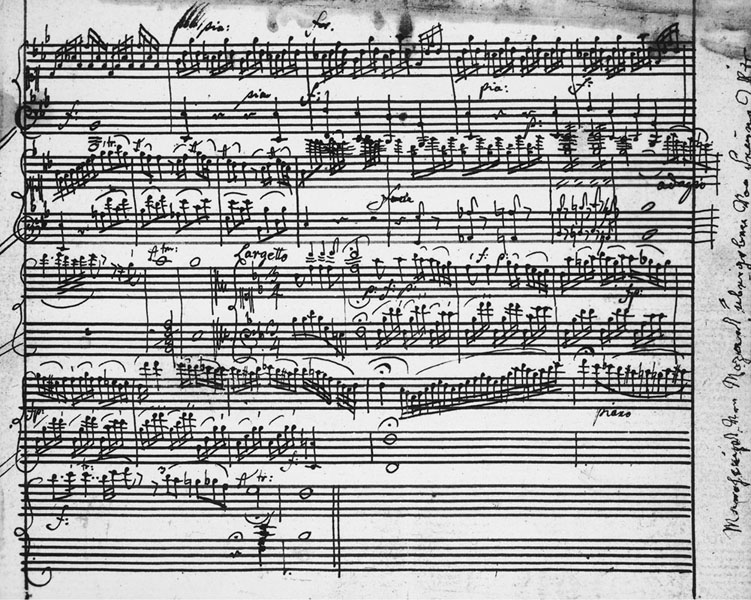
Musical notes by Wolfgang Amadeus Mozart circa 1800: Whence and how these ideas come I know not, nor can I force them.
The plane took off. It was obviously about to happen, but the way the ground fell away from underneath me still seemed very sudden and somehow, discreetly, violent.
I hoped that everything was under control, that the experts in control of my immediate fate knew what they were doing and in general felt good about their life and completely confident about the maintenance of the machine they were piloting. The behaviour of the visible professional staff in the cabin was inevitably relatively serene verging on the indifferent, even when rules and regulations were routinely explained to ensure our safety, considering how we were now beginning to hurtle through the air and there would be much less between the passengers and certain death than there had been an hour ago.
The noisy roar and erratic rattle of the plane as it arrowed upwards, drawing attention to the precariousness of my position, needed dealing with. I was still holding my phone after switching it to airplane mode, and since I had turned fifty my phone had become more of a music player than anything else. In my lifetime I had gone from the near-spiritual or theatrical ritual of the record patiently picking dust from my record players needle, dropping the stylus softly at the wobbly edge of a deeply black shiny record to connect with the groove, turning the disc over, filing all my albums in an order between thoughtful and chaotic to a point where music was held inside some sort of space inside my phone that could be quickly connected to my mind. The twentieth-century record-playing ritual, filled with beloved gestures and pauses, hisses and clicks, had been replaced by a slick functionality closer to fastening your seat belt on a plane than preparing for lift-off into all space. Once the music was playing, though, it was still music, and if you had made the right choice, still magical.
Needing to focus my mind, to turn one set of thoughts into another, to push myself more into myself, I tucked some headphones into my ears and turned to the Tidal streaming app, which is more or less where my music collection now lives. Once, when it was vinyl, my music collection might have needed a large van to move. When it was on compact disc, it would still have needed a little planning to move, especially if I wanted to carry it all around with me. A music collection was now invisible, the abstract replacing the object, and relied on such vulnerable things as battery power and connectivity. A portability that had begun in the 1970s with the futuristic Sony Walkman from future-perfect Japan, where you carried music of your choice to be played as and when as you moved around, had rapidly extended over the next forty years, turning the Walkman into a quaint period piece. By 2020 you could just speak aloud, asking a gadget for a certain piece of music and out of nowhere it would appear somewhere between magically and mechanically. The next stage in portability would be where all music laid dormant inside your head and you thought it into action. Or music became so abstract it is beyond reach.
Before I boarded my plane, ready for moments when there was no wi-fi, I had downloaded a few albums if that is what they are still called. To some extent, this small group of albums, randomly selected for hopefully temporary offline emergencies from a more consciously compiled list, was now my record collection, although I would regularly make changes to it. A quick scroll through what once would have been the automatic Dylan, Hendrix, Coltrane or Joy Division took me to what, at that moment, seemed the perfect sound, the perfect thinking, to fight off the churning, lightly menacing whine of the plane, and more significantly to take my mind off the loss of ground as the plane vibrated into the sky. There was a dull shudder as the plane was enveloped by churning cloud representing a basic struggle with mortality. The plane breaking into a devious shake can make a two-hour flight to the pleasures of Barcelona, which at the time were mostly taken for granted, momentarily seem like a death sentence.
I chose a performance of three cello sonatas written across time by a trio of German composers: Beethoven, born in 1770, Brahms, born in 1833, six years after Beethoven died, and Hindemith, born in 1895, two years before Brahms died, and living through the twentieth century until 1963, six years after I was born, the year the Beatles broke through. I am not sure it had ever been released as a record, and the two musicians playing the music, the cellist Alessio Pianelli and the pianist Mario Montore, did not seem particularly famous.
Next pageFont size:
Interval:
Bookmark:
Similar books «A Sound Mind: How I Fell in Love with Classical Music (and Decided to Rewrite its Entire History)»
Look at similar books to A Sound Mind: How I Fell in Love with Classical Music (and Decided to Rewrite its Entire History). We have selected literature similar in name and meaning in the hope of providing readers with more options to find new, interesting, not yet read works.
Discussion, reviews of the book A Sound Mind: How I Fell in Love with Classical Music (and Decided to Rewrite its Entire History) and just readers' own opinions. Leave your comments, write what you think about the work, its meaning or the main characters. Specify what exactly you liked and what you didn't like, and why you think so.

